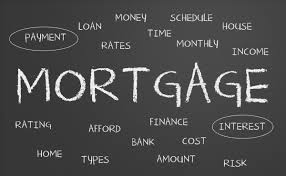 A lot of people get into trouble with their mortgages because they don’t really understand the options that they have, nor even how many options are available to them. There are a lot of different types of mortgages; some will pay off best given your situation, whereas others may end up bringing you a lot of trouble in the near-future.
A lot of people get into trouble with their mortgages because they don’t really understand the options that they have, nor even how many options are available to them. There are a lot of different types of mortgages; some will pay off best given your situation, whereas others may end up bringing you a lot of trouble in the near-future.
If you’re looking to buy a home soon, then it’s essential that you understand your mortgage options. Here is a quick look at the main types of mortgages – take the time to work out which one will be best for you.
Getting your head around rates
While the split between capital and interest is fairly easy to understand, the differences in the ways in which you can pay of the interest is a bit more complex. You may pay using a fixed rate mortgage or a variable rate mortgage. It’s important to look into both fixed and variable mortgage rates before deciding on a mortgage option because it will determine how much you’ll have to pay and how much freedom you’ll have doing it. As you can imagine, they both have their pros and cons, and some of those cons will affect some people more than others!
Repayment mortgages
Repayment mortgages are the basic forms of mortgages. It’s useful to separate the repayments into two forms: capital and interest. The capital is the big sum of money that you borrow, and the interest is the charge for borrowing it. Repayment mortgages see you pay back some of both the capital and the interest. Your debt can only ever go down. By the end of the agreed term, it will have been paid off.
Interest-only mortgages
This is a strange setup that will only work for those in very particular financial situations. In them, you only pay the interest rate at first, instead of also paying the capital repayments. This can shed a few hundred dollars off of the monthly prices. However, the reason you’re not paying capital repayments is because, at the end of the mortgage term, you then have to pay the capital as a lump sum. So at the end of the term – which tends to be in the 20-30 year region – you’ll have to pay ‘the big sum’ which usually exceeds $100,000 easily. Though it still exists and works for some, it’s become increasingly unpopular.
Flexible mortgages
These aren’t exactly the same thing as a variable rate mortgage, though variable rates do come into play here. The flexibility in question can apply to a lot more factors, generally in how and when you pay. These are the kinds of mortgages that allow you to set up over-payment arrangements. Over-payment is when you pay much more in a given month than you usually do. Most lenders don’t like this because it ends up saving you a lot of money when it comes to interest. Some lenders of flexible mortgages will even allow you to borrow some of the paid money back if you enter a financial crisis! However, fees and interest rates in these arrangements tend to be very high, often out of many homebuyers’ price ranges.




No Comments